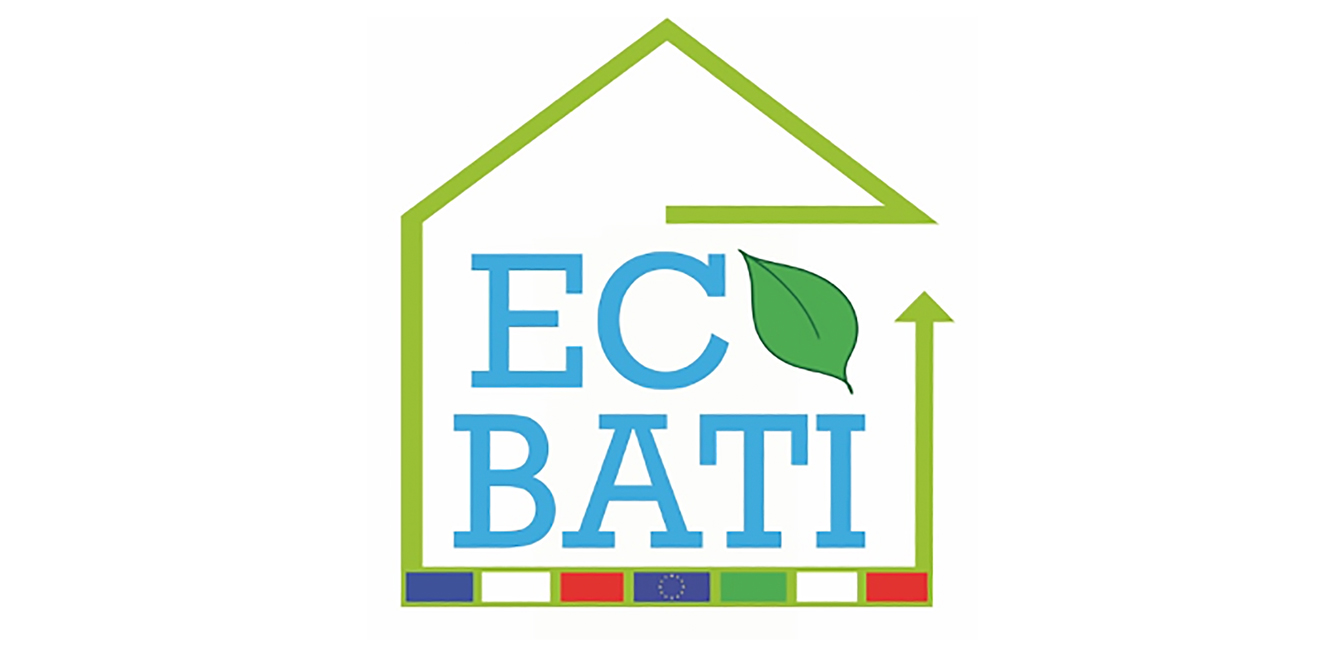Project ECO-BATI was financed under the Interreg Programme Italy – France ALCOTRA 2014 – 2020, which provides opportunities for territory promotion and cross-border knowledge sharing.
The project partners include: Cuneo Chamber of Commerce, Riviere di Liguria Chamber of Commerce , Italian Chamber of Commerce in Niece, Chambre de métiers et de l’artisanat de région Provence-Alpes-Côte d’Azur, the Municipality of Boves, Lamoro Agency for the development of the territory, GIP FIPAN and Environment Park.
The building industry holds great importance from an economic and environmental perspective, given that every year almost 50 million of waste are produced. As the economic and financial crisis unfolds, the building sector was not an exception to the sharp degrowth experienced by countries like Italy and France, highly active in the building sector.
In such cross-border context, notwithstanding some encouraging signs of economic recovery, a reorganisation of the sector in terms of innovation and environmental sustainibility seems to be necessary.
Project ECO-BATI was created with the aim of promoting new green building models and with a view to improve public buildings’ energy performances.
In particular, ECO-BATI aims at achieving the following results:
- Strengthen cross-border local supply chains for the production of eco-materials that can be used in green building;
- An increase in the adoption of innovative public procurement procedures (Green Public Procurement) by the Italian and French Public Administrations, and of verification and measurement systems of public buildings energy performances;
- An increase in the number of Italian and French companies that use eco-materialsand innovative materials from cross-border supply chains.
Four public buildings are pilot construction working sites, used for demonstration purposes in order to promote the uptake of eco-materials and as training, qualification and certification tools of the workforce’s practical skills.
The area of application comprises the provinces of Cuneo, Imperia and the Alpes Maritimes Department.
Our role
Environment Park’s technical assistance was focused building products, by referring to the requirements set out in the Minimum Environmental Criteria relative to the building sector (D.M. 11 Ottobre 2017). Such criteria relate not only to the technical specifications of the building components, but also to those concerning the building as a whole. The choice of raw materials and of the relevant production technologies are indeed of outmost importance, if the aim is reducing the environmental impact of the entire building process. In this regard, Environment Park has carried out analysis to assess the environmental impact of production processes (LCA – Life Cycle Assessment) and fostered the introduction of environmental product certifications aimed at promoting zero-kilometer products. As far as the Public Administration is concerned, Environment Park provided technical assistance to ensure the correct application of the Minimum Environmental Criteria relative to the building sector both in the design phase and during the elaboration of public tenders.
Environment Park, supported by Regione Piemonte has drawn up the Catalogue of environmentally certified building products, for the benefit of the private sector, public administration and project designers. The Catalogue represents a real showcase displaying the eco-certified products on the Italian marker.
